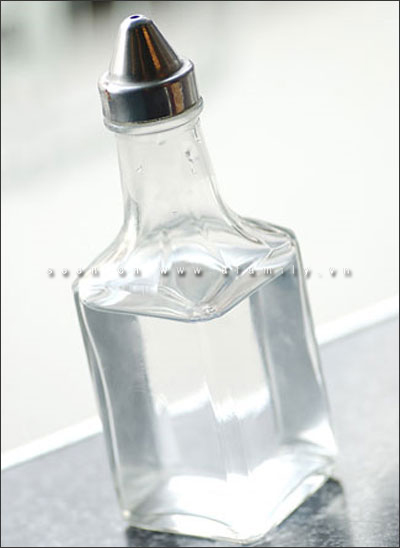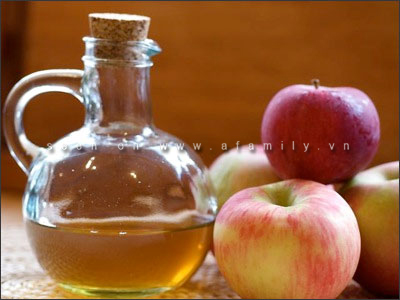Since ancient times, vinegar has been used in cooking. This condiment is popular in many different culinary cultures, from Asia to Europe. Here are some common types of vinegar used in cuisine:

This type of vinegar is usually made from beer dregs or honey. They have a strong flavor and aroma and are mainly used for pickling various types of food.

Rice vinegar is made from an odorless type of rice. During the vinegar-making process, caramel is added to give the vinegar a darker color. Rice vinegar is not suitable for dishes with subtle flavors because it has a strong odor and slightly bitter taste. Rice vinegar is commonly used to pickle vegetables and fruits. Additionally, it is also used in the production of chili sauce.
Any type of alcohol can be used to make vinegar. Wine vinegar has a milder taste compared to malt vinegar. The higher the quality of the wine, the more aromatic the vinegar will be. Wine vinegar is often an essential ingredient in preparing various sauces.
One of the main benefits of apple cider vinegar is its potential to aid in weight loss. It has been found to increase feelings of fullness and reduce calorie intake, which can help with weight management. Additionally, it may help boost metabolism and burn fat, leading to increased fat loss.
Apple cider vinegar also has antimicrobial properties, which means it can help kill harmful bacteria and viruses. This can be particularly beneficial for treating skin infections or wounds. It can also be used as a natural household cleaner, as it can effectively kill germs and bacteria on various surfaces.
In addition, it has been suggested that apple cider vinegar may help regulate blood sugar levels and improve insulin sensitivity. This can be especially helpful for individuals with diabetes or insulin resistance.
Furthermore, apple cider vinegar has been shown to have antioxidant properties, which can help protect against oxidative stress and damage caused by free radicals. This can potentially reduce the risk of chronic diseases such as heart disease and certain types of cancer.
It is important to note that while apple cider vinegar has many potential benefits, it should be consumed in moderation. Excessive consumption may lead to negative side effects, such as tooth enamel erosion and digestive issues.
Overall, apple cider vinegar is a versatile ingredient with numerous potential health benefits. Incorporating it into your daily routine may help improve overall well-being and support a healthy lifestyle.

Apple cider vinegar is an ideal seasoning that adds a sweet and sour flavor to dishes and is used for making dressings for salads. With its main ingredient being apple wine, this type of vinegar has a subtle aroma of apples and is less acidic than wine vinegar.

Rice wine is the key ingredient used to make rice vinegar. This type of vinegar is the most popular in Chinese cooking, especially in dishes that require a sweet and sour flavor.

In essence, scented vinegar is still made from wine vinegar but with the addition of other ingredients to create a pleasant fragrance like garlic, lemon, or green pepper…
When purchasing vinegar at the market or grocery stores, it’s advisable to expose the vinegar bottle to sunlight to examine if the vinegar is clear, clean, or clumped together.
The shelf life of vinegar is quite long, possibly up to a year for most types of vinegar, except for flavored vinegar which may spoil after about a month from the time you open the bottle.





































